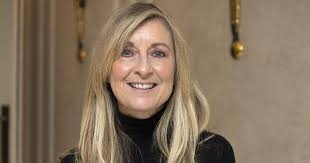The Journey of Fiona Phillips: A Respected Journalist

Introduction
Fiona Phillips, a significant figure in British journalism, has had an extensive and varied career in television broadcasting and journalism. Known for her work on popular television programmes and her insightful commentary on current affairs, Phillips has earned her place as a household name in the UK media landscape. Her story not only represents the evolution of journalism but also highlights the challenges and successes faced by women in the industry.
Early Life and Career
Born on 1st May 1961 in Christchurch, Dorset, Phillips attended the University of Kent, where she studied English and Theatre. She began her career as a researcher on BBC Radio before transitioning to television where she gained critical acclaim as a presenter. Her big break came in the late 1990s when she became a co-host of the popular morning show GMTV, alongside colleagues like Eamonn Holmes and Lorraine Kelly. Her engaging style and ability to connect with viewers helped the programme become one of Britain’s best-watched breakfast shows.
Accomplishments and Impact
Throughout her career, Phillips has been involved in numerous high-profile projects, including hosting various documentaries and being a regular contributor to panel shows and news segments. She has interviewed key political figures and celebrities, showcasing her versatility as a journalist. In addition to her work on GMTV, Phillips has also presented shows like ‘Celebrity Detox’ and participated in reality television, reflecting her dynamic approach to media. Moreover, she has been an advocate for mental health awareness, using her platform to discuss her own experiences with anxiety and depression, which has resonated with many, further cementing her status as a relatable public figure.
Recent Developments
In recent years, Phillips has continued to make headlines, shifting her focus towards writing and podcasting. She has authored articles discussing the evolution of media and journalism while being active on social media platforms, where she engages with her audience. As the media landscape continues to change with digital advancements, Phillips has adapted, demonstrating her commitment to staying relevant and insightful in an ever-evolving industry.
Conclusion
Fiona Phillips remains a celebrated figure in British journalism and television. Her commitment to journalism, her advocacy for mental health, and her ability to connect with audiences have established her as a respected voice within the media. Looking ahead, Phillips’s career continues to evolve, and her contributions to journalism will inevitably inspire upcoming generations of media professionals. For readers, Phillips’s journey not only serves as an example of perseverance but also highlights the pivotal role of journalists in shaping public discourse and understanding.









